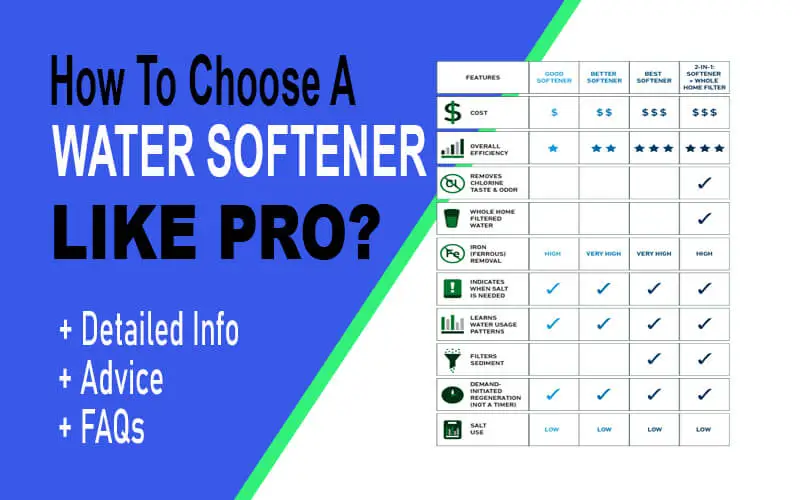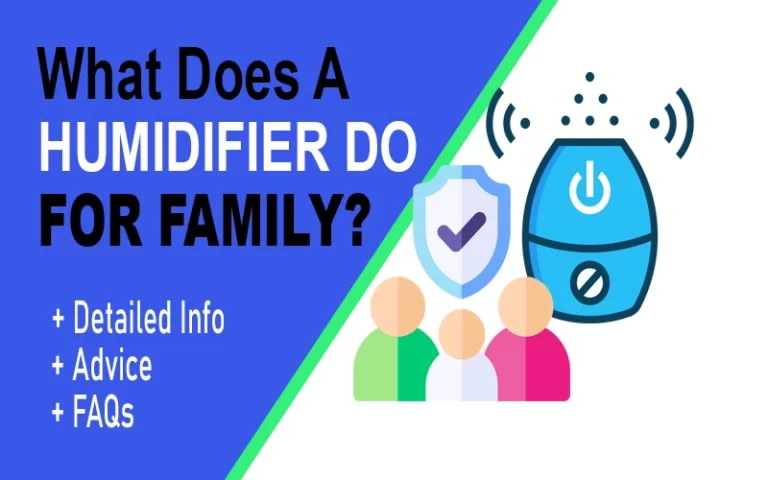How to Choose a Water Softener? [+Guide +Tips] 2023
What is a water softener? How to choose a water Softener? A water softener may be necessary if your water is hard. Water with high mineral concentrations is said to be hard water.
While the most accurate way of checking for hard water is getting your water supply tested through a lab, it can also be detected through signs such as low water pressure in the house or feeling a substance on your hands after washing them. This is due to those minerals reacting with certain chemicals in those situations to produce the symptoms; installing a water softener would process the entire water circulation in the house to alleviate these effects.
These minerals, such as calcium and magnesium, can cause problems in your home. They can make it difficult to get soap suds to form and leave spots on dishes and clothing. These minerals are removed from water by a water softener. So water softeners are worth buying devices.
How to Choose a Water Softener for Your Home?
Water softeners are essential in keeping your home’s water clean and free of contaminants. A water softener is an important investment for your home, but there are a few factors to consider before choosing one.
Household Size and Water Usage:
You may find it challenging to choose the right water softener for your home. The size of the household and the amount of water used are both important factors to consider.
When choosing a water softener, its size should be taken into account. The amount of water used by a household is directly affected by how many people live there. Therefore, it is essential to choose a water softener that can handle the demands of a large household.
A family of four may require 200 gallons of water per day, so you should choose a unit based on their usage. Water consumption for an average person is 80 to 100 gallons per day, so that’s a good place to start.
In addition to your water use, you should consider the type of water softener you plan to purchase. Water softeners that are capable of handling the needs of a family with high water consumption are necessary. You’ll need a higher capacity unit if you have hard water to convert it to soft water.
A grain per gallon (GPG) measurement can be used to determine how hard your water is. The higher the GPG, the harder your water and the more salt it will require to soften it.
Regeneration Style:
You should consider the regeneration style of your water softener before selecting it for your home. Water softeners that work on a regeneration cycle flush out the minerals they have absorbed from hard water so they can continue to soften fresh water.
Generally, there are two types of regeneration styles: automatic and manual.
Automatic regeneration is typically more expensive, but it is also more convenient because it does not require you to remember to regenerate the water softener on a regular basis.
Manual regeneration is less expensive, but it is less convenient because you have to remember to regenerate the water softener on a regular basis.
Remove Additional Contaminants:
In order to remove contaminants from your water, you will need to consider what contaminants you want to remove. Depending on the type of water softener, some will only remove hardness, while others will also remove chlorine, clear water iron, and sediment.
A unit for removing these additional contaminants will be necessary if you want to avoid further contamination. If you have high levels of these contaminants in your water supply, choosing a softener that can effectively remove them is important. The use of a water softener can remove harmful contaminants from your water supply, making them an essential component of any home. Descaler can be used if the top layer is scaly due to minerals.
Other Convenience Features:
In addition to the basic features, there are also many other convenience features that you may want to look for. Touch screens, low salt indicators, high flow valves, and water flow indicators are other convenience features to consider. Using these features can make your life easier and allow you to keep track of how much water you use.
Adding a Water Filtration System:
Filtration systems are an excellent way to treat your home’s water. There are many types of water filtration systems available, making it difficult to choose the right one for your home.
In choosing a water filtration system, it is crucial to consider the type of water you use at home. You can add it with a water softener used for your home, but its addition is unnecessary. Also, you can soften water without it, but it proves suitable for your home use.
Installation:
The installation process for a water softener is not tricky, but it is essential to understand how they work in order to choose the right one for your home.
It is critical to pursue an educated choice while picking a water softener for your home. Softened water saves your plumbing and appliances from the wear and tear of hard water and saves you money in the long run.
It is the exchange of calcium and magnesium ions for sodium and potassium ions that takes place in a water softener. With an ion exchange method, water is softened by exchanging ions.
Don’t Forget the Warranty:
Don’t forget the warranty when you purchase a water softener for your home. You should read the fine print when purchasing a warranty, because not all warranties are created equal.
Some warranties only cover parts, while others also cover labor and tanks. A warranty may also cover some electronics. Choose a water softener with a warranty that meets your needs to ensure peace of mind in case of any problems. A good water softener will benefit you a lot and make your life health and easy.
FAQs: How to Choose a Water Softener?
Where does a water softener need to be installed at home?
The location of your water softener might be a concern if you’re considering installing one. In front of the incoming main water line, it should be installed before your water heater.
This is because the water softener will work to remove minerals and impurities from the water before it even enters your home’s plumbing system. Doing this can help prolong the life of your water heater and keep your entire plumbing system running more smoothly.
So if you’re thinking about installing a water softener, put it near the incoming main water line at your home. It’s the best way to ensure it can do its job correctly.
How much water does my family use?
The water usage of a typical family can vary greatly depending on the household size and its members’ water consumption habits. Water usage per family, however, averages more than 300 gallons per day.
This water usage can be divided into several categories, such as bathing, cooking, cleaning, and watering the lawn. Most of the water that a family uses on a daily basis is for bathing and cleaning.
A typical bathtub holds around 50 gallons of water, and a shower uses about 5 gallons of water per minute. Water is used at a rate of 25 gallons per minute during a 10-minute shower. A family of four that takes two showers per day will use 200 gallons of water just for showers.
How much water does each recharge use?
During the regeneration process, a water softener will use between 35 and 65 gallons of water, depending on the size of the unit.
This may seem like a lot of water, but removing the hardness from the beads is necessary. The amount of water used during regeneration is much less than the amount that would be used if you had to constantly flush your pipes and appliances due to hard water build-up.
Some newer models are designed to be more efficient with water usage, often using around 30 gallons or less. If you are concerned about water usage, it is best to consult your owner’s manual or contact the manufacturer directly.
Conclusion:
When choosing a water softener, there are many things to consider, such as the size of your home, your budget, and your specific water needs. When choosing a water softener, you should also consider the type of water in your home. Your water softener needs will vary based on its type. A research of the different types of water softeners is essential before purchasing one.



![How To Test Generator Wattage Output? [6 Steps Guide] 2023](https://prohouseideas.com/wp-content/uploads/2022/09/how-to-test-generator-wattage-output-768x480.webp)
![How Do Water Softeners Work? [+Ultimate Guide] 2023](https://prohouseideas.com/wp-content/uploads/2022/08/how-do-water-softeners-work-768x480.webp)

![Savvy! How Much Does a Whole House Water Softener Cost? [2023]](https://prohouseideas.com/wp-content/uploads/2022/08/how-much-does-a-whole-house-water-softener-cost-768x480.webp)
![Dehumidifier vs Fan [+Pros & Cons | Advice | FAQs] 2023](https://prohouseideas.com/wp-content/uploads/2022/07/dehumidifier-vs-fan-768x480.webp)